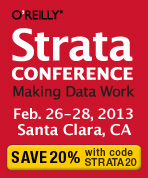When I was a youngster in college I found myself dissatisfied after I took a stats class from the math department. So I decided to take another stats class. Classmates thought I was crazy. Let’s be real, what precocious over-achieving teenager majoring in English lit seeks to retake a math class? And not because of a grade but because they were dissatisfied with what they didn’t get out of it? After a bit of research, I decided to take the stats class offered by the psych department.
It made a significant difference.
Thinking about math from the perspectives of research design methodology and how data can be used to manipulate people made quite an impact on my teenage worldview. This experience also reinforced my belief that education is what you decide it will be. There is always more than one way to learn and education doesn’t necessarily have to happen in a physical classroom. Growing up in the San Francisco Bay Area where friends and loved ones decided to forgo traditional higher ed completely to start their own companies or immediately work in jobs in technology also contributed to this belief.
While full time students who are looking at a career in data science may have the time to do seemingly nutty things like take overlapping math classes, this is not something that most people with full time jobs are able to do. When people with full time jobs ask me about what they need to do to move into data science, I probe them about the kind of job in data science they want and about their analytical and empathy skills. Then, I immediately follow up with “So, how are your math skills?.” Interestingly enough, I get a lot people saying how they don’t have time to physically go into a classroom or that it has been, like, forever since they’ve used statistics and/or linear algebra for data analysis. Even more interesting is how often people don’t realize just how many resources are available to learn math outside of the physical-attendance-in-a-classroom-model.
Huh.
Typically when I get resistance from people about brushing up on their math skills, I tell them to review the jobs sections on Kaggle, Twitter, LinkedIn, and heck even the CIA; subscribe to Indeed or the like for various data-related job alerts; and then take a moment to absorb what the most common requirements are for the type of job in data science they want. I tell people to do this because, naturally, I have already done so and I know exactly what the answer is.
Yup, it is math.
If you weren’t a math major or do not use math in your everyday job, don’t freak out.
Thankfully, there are a multitude of resources available to learn or brush up on math skills.
I’ve included a few of my recommendations in this post. I will leave it to you to pick which individual math resources apply to your specific situation. You’ll know exactly which math skills you need to brush up on after reviewing the most common job requirements for the data science job you want.
Yet, at an absolute minimum, you will need to know statistics and that should just be the beginning.
MIT OpenCourseWare (MIT OCW) — MIT OCW provides a comprehensive list of free online undergraduate and graduate courses in math including linear algebra, statistics, and algorithms. I have been using this site for years as a reference for many topics.
Coursera — Coursera offers free online courses from well-regarded universities. Courses are always being added. Yet, depending on your current math skills, courses on mathematical thinking, calculus, linear algebra, and algorithms may be helpful.
Khan Academy — Khan Academy has an extensive library of math-related videos that may assist students of all ages.
Mathbabe aka Cathy O’Neil’s Recommendations — While there is a little overlap between my and Ms. O’Neil’s recommendations, I wanted to include her recommendations because they are extensive.
iTunes U — Downloading videos to your device for audio playback during commutes, doing the dishes, etc. helps with reinforcement with what you are reading and may also provide context. I often play videos from iTunes U as well as O’Reilly’s Strata Conferences while I am cooking. iTunes U offers lectures and classes on statistics, algorithms, and more.
Don’t forget! If you have any ideas or suggestions for a post on strata.oreilly.com, please feel free to let me know at pitchstrata@oreilly.com.
 Strata Conference Santa Clara — Strata Conference Santa Clara, being held Feb. 26-28, 2013 in California, gives you the skills, tools, and technologies you need to make data work today.Save 20% on registration with the code STRATA20
Strata Conference Santa Clara — Strata Conference Santa Clara, being held Feb. 26-28, 2013 in California, gives you the skills, tools, and technologies you need to make data work today.Save 20% on registration with the code STRATA20
